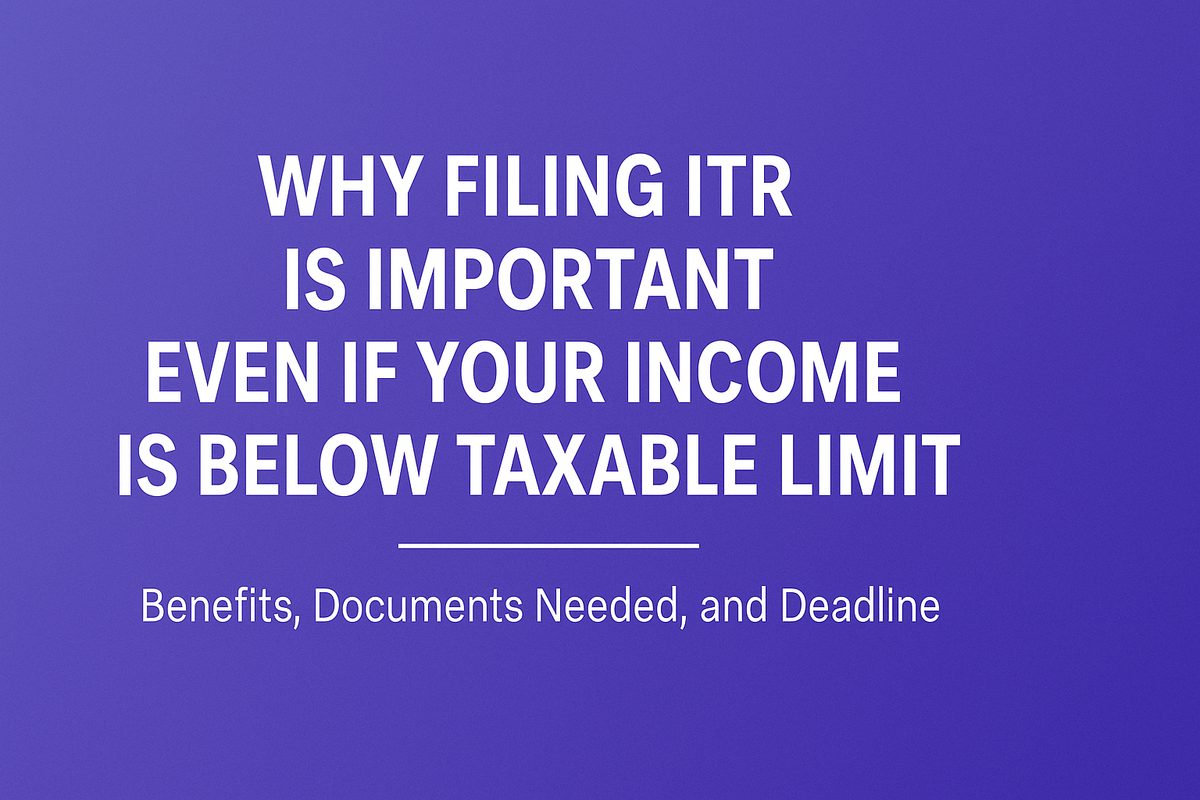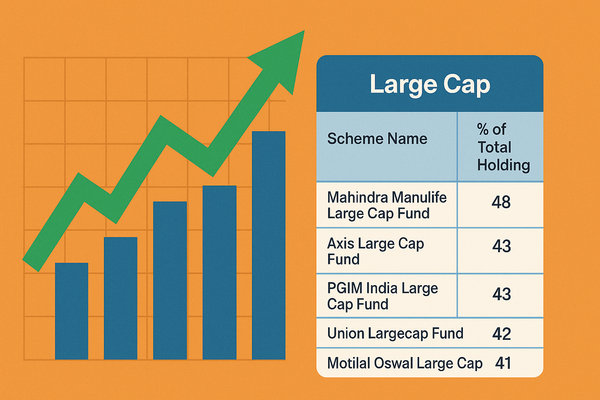Why Filing ITR Is Important Even If Your Income Is Below Taxable Limit
Think you're exempt from filing ITR because your income is low? Think again. Filing yearly helps claim refunds, builds your financial profile, and avoids future trouble. Find out why it matters, what documents you need, and how a CA can simplify the process.

Filing Income Tax Return annually is crucial even if your income is below taxable limits. Learn why it matters, key documents needed, and how a CA can help
Filing your Income Tax Return (ITR) every year is important, even if your income is below the taxable limit. This simple act offers multiple benefits, protects you from future hassles, and keeps you compliant with the law. Ignoring it can lead to missed refunds, difficulties in financial transactions, and penalties. Here’s why filing annually matters, the documents you need, and why professional help can make a difference.
Why Filing ITR Matters Even Without Tax Liability
- Proof of Income and Financial Discipline: Filing ITR creates an official record of your income. This helps when applying for loans, credit cards, or visas, as financial institutions and authorities often ask for it as proof of income.
- Claim Tax Refunds: If tax was deducted at source (TDS) on your income, filing ITR is the only way to claim refunds.
- Carry Forward Losses: Filing allows you to carry forward losses like capital losses, which can reduce tax liability in future years.
- Avoid Legal Complications: The tax department may ask for returns to verify your financial status. Not filing can invite penalties or scrutiny.
- Access Government Benefits: Many subsidies, scholarships, and tenders require proof of income tax compliance.
- Build Creditworthiness: A consistent filing record strengthens your financial profile.
Important: This Year’s ITR Filing Deadline is 31st July 2025
The last date to file your Income Tax Return for the financial year 2024-25 is 31st July 2025. Filing on time avoids penalties and interest on any outstanding tax liability. If you miss this deadline, you can still file a belated return but may face fines and lose certain benefits.
Basic Documents Needed for ITR Filing
To file your ITR smoothly, keep these documents ready:
- Form 16: Issued by your employer, showing salary and TDS details.
- Form 26AS: Your tax credit statement showing all TDS deducted.
- Bank Statements: For interest income and other transactions.
- Investment Proofs: For tax-saving investments under sections like 80C.
- Capital Gains Statements: If you have sold assets like shares or property.
- Other Income Proofs: Rent receipts, freelance income, or any other sources.
- PAN and Aadhaar: Essential identity documents.
Vital Points Often Overlooked and Why a Chartered Accountant Helps
Here are the key points that often require professional help, along with how missing or wrongly filing them can impact you financially:
- Mismatch in TDS and Income Reporting:
If your TDS details in Form 26AS do not match the income you report, your return may be rejected or flagged for scrutiny. This can delay refunds and may result in notices or penalties, costing you both time and money. - Missing Legitimate Deductions or Exemptions:
Not claiming all eligible deductions means you pay more tax than necessary, reducing your disposable income. Over time, this can add up to a significant financial loss. - Failure to Carry Forward Losses:
If you don’t file your return on time or correctly, you lose the right to carry forward capital or business losses. This means you cannot offset these losses against future gains, which could increase your tax liability in coming years. - Incorrect Reporting of Multiple Income Sources:
Mistakes in reporting income from salary, freelance work, rent, or investments may result in underpayment of tax. This can attract interest, penalties, or even prosecution for tax evasion, leading to substantial financial and legal consequences. - Not Reconciling Form 26AS or Missing TDS Credits:
If you don’t check your Form 26AS, you may pay tax twice on the same income or miss out on refunds due to you, directly impacting your cash flow. - Late or Error-Prone Filing:
Filing after the deadline or with errors can make you ineligible for certain government benefits, loans, or subsidies that require clean tax records. You may also incur late fees and lose the right to carry forward losses. - Non-Compliance with Changing Tax Laws:
Missing updates in tax rules can result in unintentional non-compliance, which may lead to penalties or disqualification from tax benefits.
A professional Chartered Accountant (CA) helps you avoid these pitfalls by ensuring accurate filing, maximizing tax benefits, and keeping you compliant with regulatory changes. They also assist in responding to notices and managing complex tax situations.
Actionable Takeaways
- File your ITR before 31st July 2025 to avoid penalties and interest.
- Gather all essential documents early to make filing hassle-free.
- Use online government portals or trusted fintech apps for easy filing.
- Check your Form 26AS and TDS details carefully before filing.
- Consult a Chartered Accountant if you have multiple income sources, investments, or face complex tax situations.
- Maintain consistent filing every year to build a strong financial record.
Real-World Example
If you earned below the taxable limit but had TDS deducted on fixed deposits or freelance income, filing your ITR lets you claim refunds. Without filing, that money stays with the government. Similarly, when applying for a home loan, banks often require ITR proof—even if you don’t pay tax—to verify your financial standing.
Summary
Filing your Income Tax Return every year is a simple yet crucial step for financial health, legal compliance, and unlocking benefits. Keep your documents ready, file on time by 31st July 2025, and seek professional help if needed. This small effort today can save you time, money, and stress in the future.




